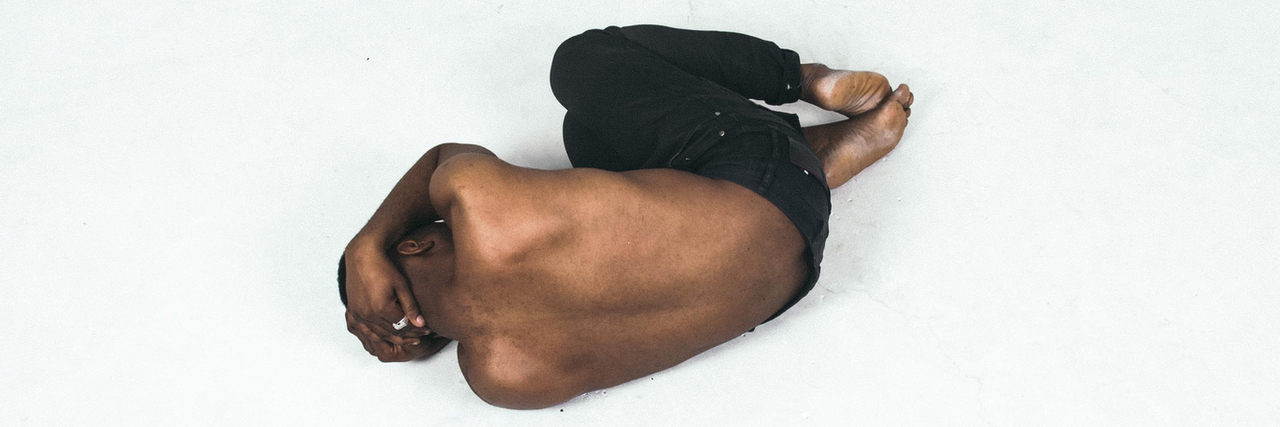It’s no secret that being black in America can have a damaging effect on mental health. According to Imani Walker, D.O., psychiatrist and star of Bravo’s latest spin-off, “Married to Medicine: Los Angeles,” the struggle of being black in America may cause a mental health struggle we don’t talk about — racial battle syndrome.
For those who have never heard the term, Dr. Walker explained, “Racial battle syndrome is a maelstrom of frustrations and feelings of inadequacies based on this country’s lack of action to acknowledge that we matter.”
Similar to the term “racial battle fatigue,” coined by William A. Smith, Ph.D., “racial battle syndrome” draws its name from the similarities of trauma experienced by combat survivors. Post-traumatic stress disorder or PTSD is commonly associated with combat survivors of war, but what some may not realize is that the effects of war can be experienced in a racial context as well.
Black people endure a different kind of “war” in their backyards at the hands of violence, injustices, oppression, systemic racism and microaggressions.
As a result of this, black people are often left with unresolved and sometimes unacknowledged trauma that they carry with them. In a study on inherited trauma following the Holocaust, researchers found that people whose parents survived the Holocaust had alterations in their genes because of the stress and trauma their parents endured.
Walker believes the findings from this study can apply to black folks in America. For example, she believes certain mental disorders like depression are embedded in our DNA. Walker told The Mighty:
I think the same definitely applies to African-Americans. Not only were we ripped from whichever West African nation we originally came from, and then we got over here and we’re made to work for free and treated subhuman and inhuman, and then you’re raped and your children are ripped from you – these things are embedded in our DNA and when it comes to mental illness, we shun it. We don’t want to talk about it, we don’t even want to acknowledge it’s an issue.
If you aren’t sure what qualifies as a microaggression, Derald Wing Sue Ph.D. defines it as “the everyday verbal, nonverbal, and environmental slights, snubs or insults, whether intentional or unintentional, which communicate hostile, derogatory, or negative messages to target persons based solely upon their marginalized group membership.”
Microaggressions tend to be subtle and can range from comments like “You’re pretty for a black girl” and “Where are you from? You sound so articulate” to “I don’t see color. There’s one race, the human race.” Actions like grabbing your purse closer to you when you see a person of color or following them around the store are also microaggressions.
Macroaggressions differ from microaggressions as they are more overt or large-scale aggressions targeted to a group of people based on race, culture or gender. As such, macroaggressions are more reflective of systemic injustice and participation in the oppression of structural racism.
Macroaggressions are intentional, persistent and malicious. They can look like the use of the “n” word towards black people as a slur, being excluded from employment opportunities due to discriminatory work practices put in place about hair, etc. A larger scale example is the way black people tend to be criminalized and given longer sentences for offenses than their white counterparts.
“The easy things to deal with are macroaggressions, but when you deal with microaggressions, you’re dealing with another kind of gaslighting,” Walker said. “Then you have a situation where black people are the biggest living survivors of PTSD. Ever.”
In addition to racial battle syndrome, black people are likely to experience other mental health struggles. According to Mental Health America, black adults are 20 percent more likely to report serious psychological distress than white adults, and often struggle more with the stigma of seeking psychological help.
Ultimately, Walker believes the power to rehabilitate and heal lies within the collective. In addition to therapy, regaining a strong sense of pride in the black identity and loving and celebrating oneself is at the top of her list.
“We’re surviving. A dog can live on the street. That’s surviving. That’s not thriving. We’re surviving – that’s cool and everything – but we need to thrive,” she said.
If you’re finding it hard to thrive due to struggles with depression or PTSD, you’re not alone. There are resources available to help you on your journey. Contact a trained crisis counselor by texting CONNECT to 741741. Or check out some additional resources here below:
Photo by mwangi gatheca on Unsplash

